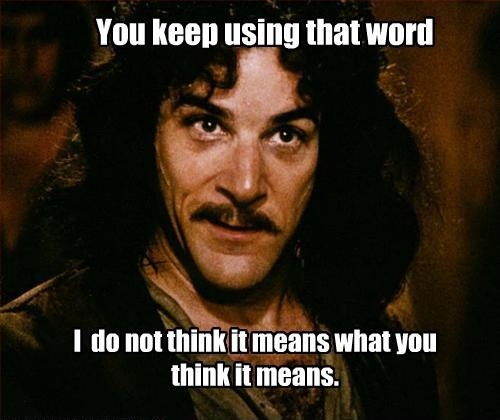Christian Hypocrites: The Sanctuary and the Stage

The word “hypocrite” is used to describe Christians so regularly these days that it’s practically a cliché. What people intend to communicate when they describe Christians in this way is that Christians say one thing and yet do another.
In particular, they object to the fact that Christians say that one should not sin and yet they sin! As a result, some people think that the moniker of “hypocrite” is both justified and appropriate. Unfortunately, that’s not what the word means…

The Hypocrites of Hollywood
The English word “hypocrite” comes from the Greek word “hupokrites”, and was the word used in the ancient world to describe those who performed in the theatre. It literally means “actor” and this etymology reveals the actual meaning of the word…
In a play, an actor might launch a tirade of abuse at another man on stage, as though he hates him with every fibre of his being, even though they may actually be very close friends who’ll be sharing a pint at the pub half an hour after the closing curtain falls! In a similar way, it surprises many to find out that Rachel McAdams and Ryan Gosling, stars of “The Notebook”, actually could not stand each other during filming. Yet, on screen, the romance between them sizzles, giving “The Notebook” the status of one of the most popular romantic movies of all time.
In both of these examples, we see actors (“hypocrites”) play a role, doing one thing but believing another. This is the essence of what it means to be a hypocrite.

What does sin prove?
The fact that Christians sin doesn’t show them to be hypocrites, it just shows them to be human! In fact, Christian sin demonstrates some of the founding tenets of Christianity, that “all have sinned and fall short of the glory of God” (Romans 3:23) and that even Christians are in need of forgiveness and a Saviour!
“The Church is justified, not because her children do not sin, but because they do”
– G.K. Chesterton, The Everlasting Man
In the previous section we saw that hypocrisy is the disparity between action and belief. Now, some might say that if you believe something you’ll automatically live in accord with it, but I don’t think this is the case. Speaking personally, I firmly believe that sin is wrong, yet my confessor (as well as my friends, family and coworkers) can certainly affirm that I do sin. Similarly, I believe it is wrong to gossip, but I could not tell you that not every word out of my mouth is spring water and honey. This struggle to do what we know to be right is not a recent phenomenon. St. Paul wrote about it back in the First Century:
I can will what is right, but I cannot do it. For I do not do the good I want, but the evil I do not want is what I do
– Romans 7:18-19
This is not hypocrisy. It would be hypocrisy if I said that sin is wrong but actually believed that it wasn’t. Hypocrisy is not being weak, nor is not simply being sinful. No, hypocrisy is doing one thing but believing another, treating the moral life in the same way an actor treats the stage, acting out a role while not really believing the lines he recites…

Please forgive (or just delete) this controversial comment. Who knows, you may even like it.
There’s two questions for me. I read this, and I think, “Maybe there are more actors/pretenders in Protestant churches than Catholic ones.” Maybe it’s because RCC teaching is that you actually have to have good works to go to heaven, while Protestants who want to go to church for cultural or family reasons can always adopt the “works aren’t necessary” doctrine to justify the most outrageous sin.
I think US Christianity, Catholic and Otherwise, has a deadly lack of teaching about holiness (without which no one will see the Lord, Heb. 12:14), so that many Christians cruise along, being careful not to cuss, smoke, drink, chew, or hang around with those that do, but making only the slightest effort at loving God with all their heart and strength. A sharp tongue, being quick to anger, greed, gossip, all go undetected because of disinterest and lack of teaching in far too many US Christians.
I guess I can’t call those people “hypocrites” because they’re not acting. Still, it’s a huge problem that comes to my mind when I hear the word.
Finally, to state it again, I think the occurrence of pretenders in Protestant churches is much higher than your article seems to indicate. The issue is not human weakness, but it is blatant sinners who are obligated to pretend to be Christians on Sunday for social or family reasons. Those are truly actors, and they are not rare in the Protestant churches I have attended.
Controversial comments are always welcome here 🙂
I can see why you might wonder this, and while I think there’s some truth in it, I’m not completely convinced. I say this, in part, because there are some dangers particular to Catholicism which can lead down a similar route. For example, pride in belonging to “the one, true Church” can do a lot to nurture spiritual complacency. Likewise, many disengaged Catholics appear to have developed a strange attitude towards the Sacraments, viewing their reception as a mechanical punching of one’s ticket which grants immediate access to Heaven. These people have been sacramentalized but not evangelized.
Ah yes, the deadly sins… You missed “Wear men’s pants” and “Watch Opera”.
It’s one of those funny situations where the “plain sense of Scripture” is seen more clearly by those who don’t go to church. Rather than accepting the jesus-prayer-I’m-saved-forever doctrine of fundamentalism, the unchurched are still often keenly aware that Jesus had a thing or two to say about fleeing from sin.
I would regard this as being far more within the “acting” territory. Standing up and reciting the Confiteor or the Nicene Creed while not believing a word of it…
Having said that, I think that very often our congregations can nurture acting, particularly in those brands of Christianity where one must always be a shiny-happy-Christian. In those churches, one must always “live in victory”. Doubts, problems and suffering are not allowed there and therefore neither is authenticity…